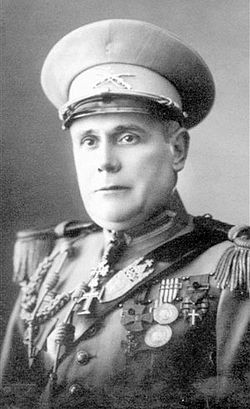Artur Barros Basto
|
Artur Carlos de Barros Basto Abraham Israel Ben-Rosh אברהם ישראל בן-ראש |
|
|---|---|

Barros Basto
|
|
| Born | 18 December 1887 Amarante, Portugal |
| Died | March 8, 1961 (aged 73) Porto, Portugal |
| Nationality |
|
| Occupation | Army Captain, Writer, Jewish leader |
| Known for | Portuguese Dreyfus |
| Notable work | World War I war Hero, Founder Jewish Community of Porto, Assisted in the making of Kadoorie Synagogue, Helped Crypto-Jews return to Judaism, Helped Jewish refugees in World War Two and founded and directed the Portuguese Jewish Newspaper called Ha-Lapid |
| Movement | Republicanism |
| Spouse(s) | Lea Azancot |
| Relatives | Daniela Ruah, Isabel Ferreira Lopes |
Artur Carlos de Barros Basto (Hebrew: אברהם ישראל בן-ראש; Abraham Israel Ben-Rosh) was born December 18, 1887 in Amarante, Portugal, and died in Porto on March 8, 1961. He made a career in the military and as a writer, who published several works related to Judaism. He was an important Jewish leader and one of the people who established the Jewish Community in Porto and assisted the construction of the Kadoorie Synagogue, the biggest Synagogue in Iberian Peninsula. Furthermore, he helped the return of Crypto-Jews to the Jewish people and, during World War II, helped Jewish refugees escape the Holocaust.
When Barros Basto was still young his dying grandfather revealed to him that he had Jewish ancestors. His family had not kept the Jewish precepts and so he became aware of the existence of Jews in Portugal only in 1904; the year he read a newspaper article referring to the inauguration of the synagogue Shaaré Tikva, in Lisbon.
Years later, he joined the army, and when ordered to attend a course at the Escola Politécnica de Lisboa (Technical School of Lisbon), the young Barros Basto went to the synagogue of the city in an attempt to be admitted there. The leaders of the synagogue didn’t give him permission but Barros Basto wouldn’t give up.
When the Republic was established in 1910 Barros Bastos was the one who raised the Republican flag in the city of Porto.
During the First World War, as a lieutenant of the army he commanded a battalion of the Portuguese Expeditionary Corps in the front of Flanders. For his acts of bravery and honor on the battlefield he was awarded medals and promoted to captain.
...
Wikipedia
